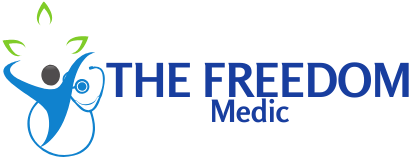Construing a strong sense of integrity and ethics is essential for not only personal growth but also for fostering healthy and trusting relationships with those around you. In today’s world, it’s crucial to cultivate a strong moral compass to navigate through complex ethical dilemmas and moral grey areas. By following a few key principles and practices, you can strengthen your ethical code and lead a more fulfilling and righteous life.
Fundamentals of Integrity
For you to develop a strong sense of integrity, it is crucial to understand the fundamentals of this characteristic. Integrity is often defined as the quality of being honest and having strong moral principles. It is about doing the right thing even when no one is watching. Having a strong sense of integrity means that you are able to make ethical choices and take responsibility for your actions. It is a key component in building trust and respect in all aspects of your life.
Definition and Key Aspects of Integrity
Integrity encompasses honesty, truthfulness, and adherence to strong moral and ethical principles. It involves being consistent in your values and actions, even in the face of challenges or temptations to act otherwise. Integrity is about being reliable and trustworthy, and it is a key aspect of building a positive reputation.
The Role of Personal Values and Beliefs
Your personal values and beliefs play a significant role in shaping your integrity. They serve as the foundation upon which your ethical decisions and actions are based. Being aware of your values and beliefs and aligning them with your actions is crucial in developing a strong sense of integrity. It is important to examine whether your actions are consistent with your core values and beliefs, and to make adjustments as needed to maintain your integrity.
Ethical Frameworks and Decision-Making
Obviously, developing a strong sense of integrity and ethics requires understanding the different ethical frameworks and how to apply them in real-life scenarios. Ethical frameworks are the foundation of ethical decision-making, guiding you in making choices that align with your values and principles.
Understanding Ethical Theories
When it comes to understanding ethical theories, you need to familiarize yourself with the major ethical perspectives such as consequentialism, deontology, and virtue ethics. Consequentialism focuses on the outcomes of your actions, deontology emphasizes following moral rules, and virtue ethics emphasizes moral character and virtues. By understanding these different ethical theories, you can navigate ethical dilemmas and make decisions based on sound reasoning and moral principles.
Applying Ethical Principles in Real-Life Scenarios
Once you have a solid grasp of ethical theories, the next step is to apply ethical principles in real-life scenarios. This involves considering the potential consequences of your actions, following moral rules, and cultivating virtuous traits. For instance, when faced with a decision that can impact others, you can apply the ethical principle of beneficence, which entails promoting the well-being of others. By consistently applying ethical principles, you can strengthen your integrity and demonstrate ethical behavior in various situations.

Cultivating Integrity and Ethics
Your integrity and ethics are essential aspects of your character and can significantly impact your personal and professional life. Cultivating a strong sense of integrity and ethics requires conscious effort and commitment. Embracing these values will help you build trust, credibility, and respect in your personal and professional relationships. Here are some tips to help you develop and maintain your integrity and ethics:
Strategies for Personal Development
Developing your integrity involves consistently aligning your actions with your values and principles. Start by reflecting on your beliefs and identifying the qualities that you consider important for living a fulfilling life. Practice self-awareness and self-reflection to recognize your strengths and areas for improvement. Set clear personal boundaries and stay true to them, even when faced with challenging situations. Strengthen your integrity by upholding honesty, accountability, and righteousness in all your actions. For more in-depth strategies, you can explore the 5 Top Tips to develop your Integrity.
Building an Ethical Environment in the Workplace
When it comes to building an ethical environment in the workplace, you play a vital role in shaping the culture and values of your organization. Lead by example and demonstrate ethical behavior in your interactions with colleagues, clients, and stakeholders. Encourage open communication and transparency within the workplace, and address any ethical concerns or issues promptly and effectively. By promoting ethical decision-making and integrity within the organization, you contribute to a positive and respectful work environment that fosters accountability and trust. Your commitment to upholding ethical standards serves as a guiding light for others to follow.
Challenges and Solutions
Now that you understand the importance of integrity and ethics, it’s essential to recognize the challenges you may face in developing a strong sense of both. One common obstacle is the pressure to compromise your values in the workplace. According to The Importance Of Integrity In The Workplace And How … – Sling, this pressure often comes from management, colleagues, or even yourself. It can be challenging to maintain integrity and ethics when faced with conflicting interests and pressures.
Common Obstacles to Ethical Behavior
One of the most common obstacles to ethical behavior is the fear of consequences. Whether it’s the fear of losing your job, damaging your reputation, or facing backlash from your peers, the potential consequences of doing the right thing can be daunting. Additionally, conflicting priorities and goals within the organization can make it difficult to find a clear path toward ethical decision-making.
Tools and Techniques for Overcoming Ethical Dilemmas
When faced with ethical dilemmas, it’s essential to have tools and techniques to help you navigate these difficult situations. One of the most effective tools is to clearly define your values and principles. By understanding what is most important to you, you can make decisions that align with your integrity and ethics. Additionally, seeking advice from mentors or trusted colleagues can provide valuable perspectives and guidance. Finally, developing a strong moral compass through self-reflection and continuous learning can help you navigate ethical challenges with confidence.
Integrity and Ethics in Leadership
However, when it comes to leadership, integrity and ethics are critical components that can make or break your success as a leader. As a leader, you are responsible for setting the tone for the ethical culture of your organization. Your team looks up to you and takes cues from your behavior. Therefore, it is crucial that you consistently demonstrate strong integrity and ethical behavior in your leadership role.
For practical advice on how to preserve your integrity and consistently make ethical decisions, you can refer to this article on How to Preserve Your Integrity – Consistently Making the Right Choices.
The Impact of Ethical Leadership
As a leader, the impact of your ethical behavior extends far beyond your own actions. Your ethical leadership sets the tone for the entire organization. When you consistently demonstrate honesty, fairness, and accountability, you create a culture of trust and respect. On the other hand, if you compromise your integrity, it can have severe consequences, eroding trust, and damaging your reputation as well as that of the organization.
Examples of Ethical Leadership Practices
Leading by example is one of the most powerful ways to instill integrity and ethics within your team. This means consistently following through on your commitments, being transparent in your communication, and holding yourself and others accountable for ethical behavior. Embracing ethical decision-making processes, such as seeking diverse perspectives, and weighing the consequences of your choices, also contribute to ethical leadership practices.
Developing a Strong Sense of Integrity and Ethics
Taking this into account, it is crucial to develop a strong sense of integrity and ethics by consistently practicing honesty, accountability, and respect in your daily interactions. By setting clear boundaries and standing up for what is right, you demonstrate to others and yourself that you are committed to upholding ethical values. Additionally, seeking out mentorship and guidance from individuals who have demonstrated strong ethical principles can provide invaluable insight and support as you navigate ethical dilemmas. Ultimately, embodying integrity and ethical behavior requires ongoing self-reflection and a willingness to hold yourself accountable for your actions.


